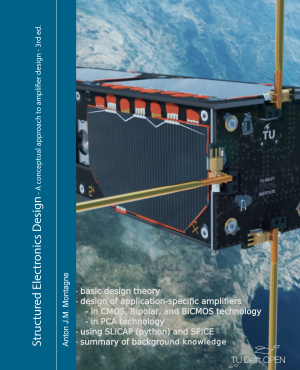Nonlinearity design consideration#
Negative feedback is capable of reducing errors due to the nonlinear behavior of the controller. The nonlinearity of the controller causes nonlinearity of the loop gain and of the servo function. Let us assume the asymptotic gain is linear and equals the ideal gain. The nonlinearity of the gain of the feedback amplifier is then fully determined by the nonlinearity of the loop gain.
Loop gain differential gain error#
Let \(\varepsilon_{y,L}\) be the differential gain error of the loop gain \(L_{y}\ \)at a load signal excursion \(y\) from the quiescent operating point. The loop gain in the quiescent operating point equals \(L_{Q}\). The differential gain of the loop gain is defined as
The differential gain \(\varepsilon_{y,A_{f}}\) of the source-to-load transfer is defined as
in which \(A_{f,y}\) is the gain of the source-to-load transfer at a load signal excursion from the quiescent operating point of \(y\):
and \(A_{f,Q}\) is the source-to-load transfer in the quiescent operating point \(Q\):
Substitution of (diffGain2) and (diffGain3) in (diffGain1) yields
This can be written as
With the aid of (diffGain0), we may write this as
Hence, the differential gain of a negative feedback amplifier at a load signal excursion \(y\) from the quiescent operating point equals that of the controller at the load operating point \(y\), divided by the return difference at that operating point.
If the differential gain of the loop gain at a load signal excursion \(y\) from the quiescent operating point is small, we may also write this as:
Hence, the differential gain of a negative feedback amplifier can be reduced by increasing the loop gain in such a way that the differential gain error of the loop gain is not increased.
Design conclusion#
Definition
The contribution of the controller to the nonlinearity of the amplifier can be minimized by minimizing its contribution to the differential error-to-gain ratio of the loop gain.
For this reason, we will use the contribution of the controller to the \emph{differential error-to-gain ratio }of the loop gain, as a figure of merit for a controller and for any amplification stage in it.
